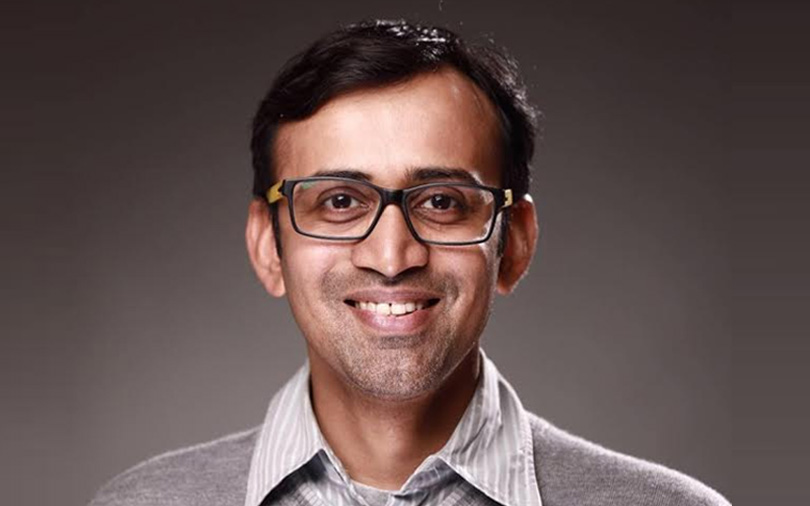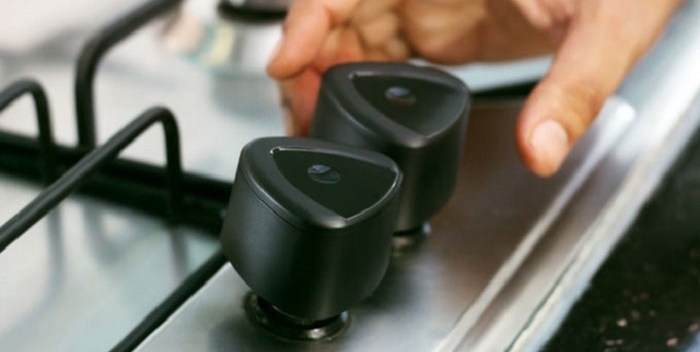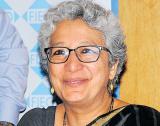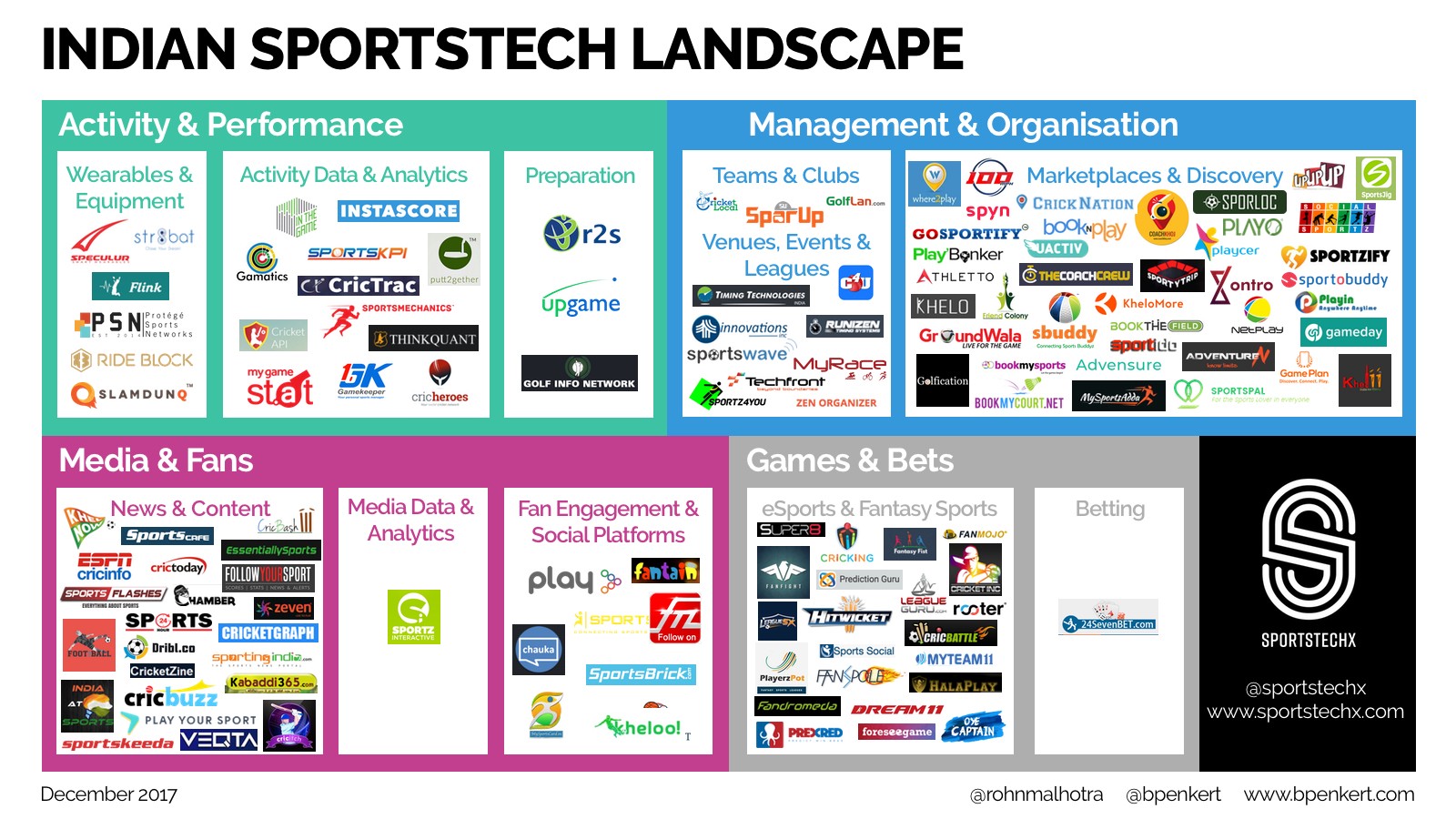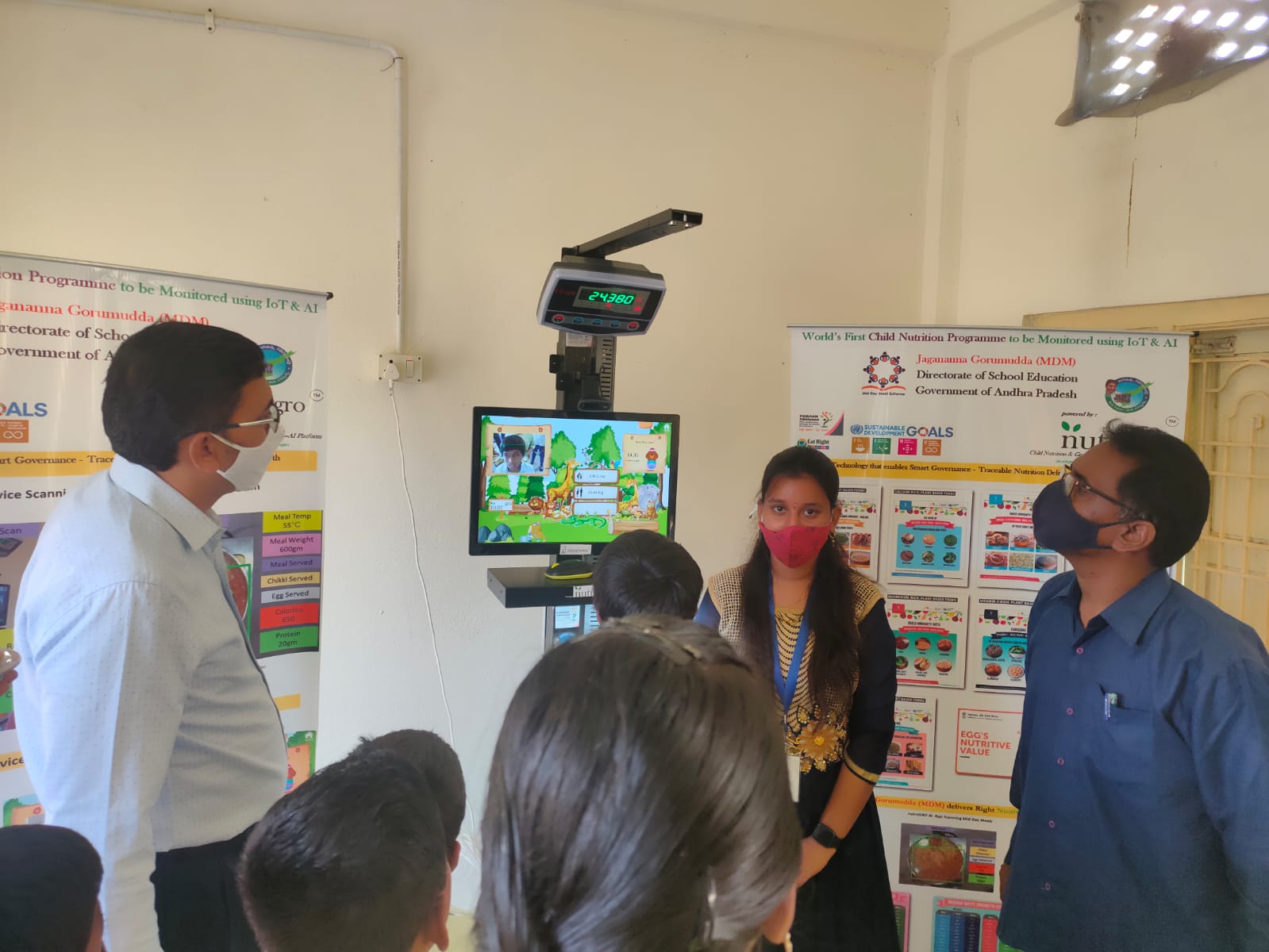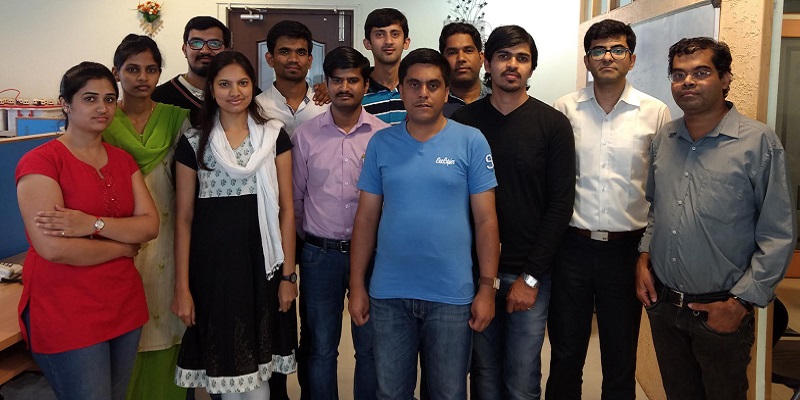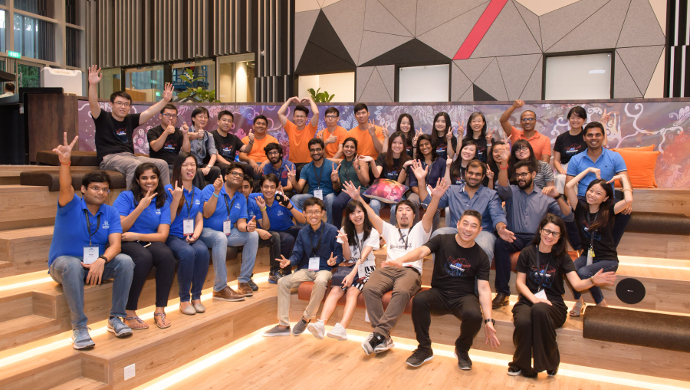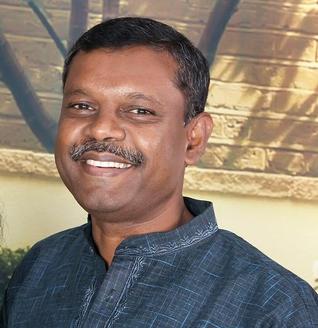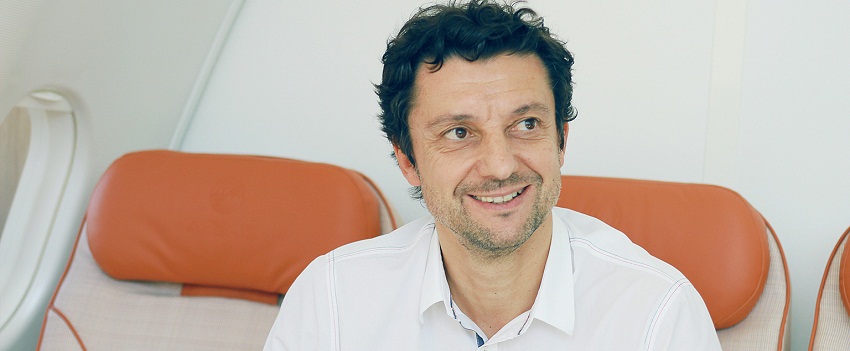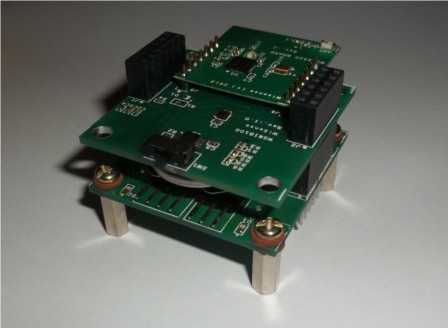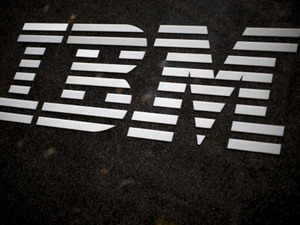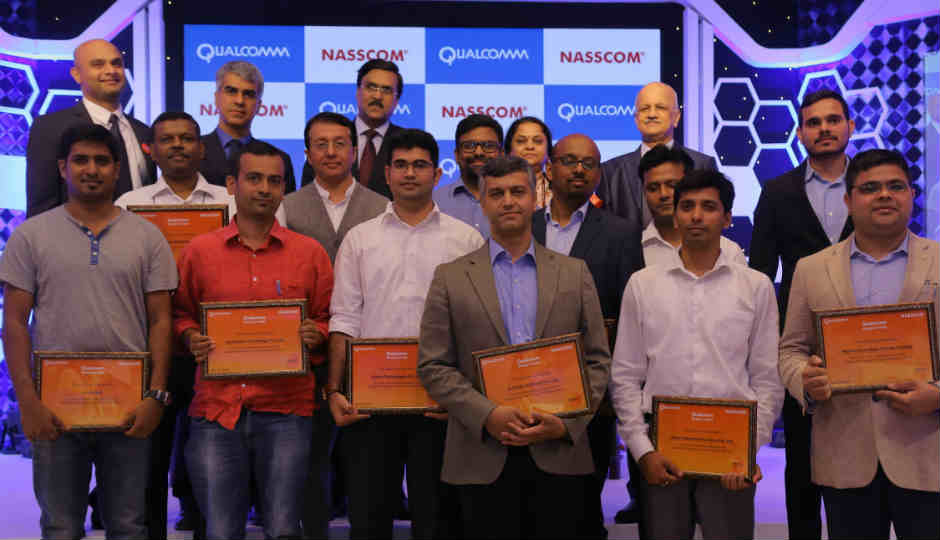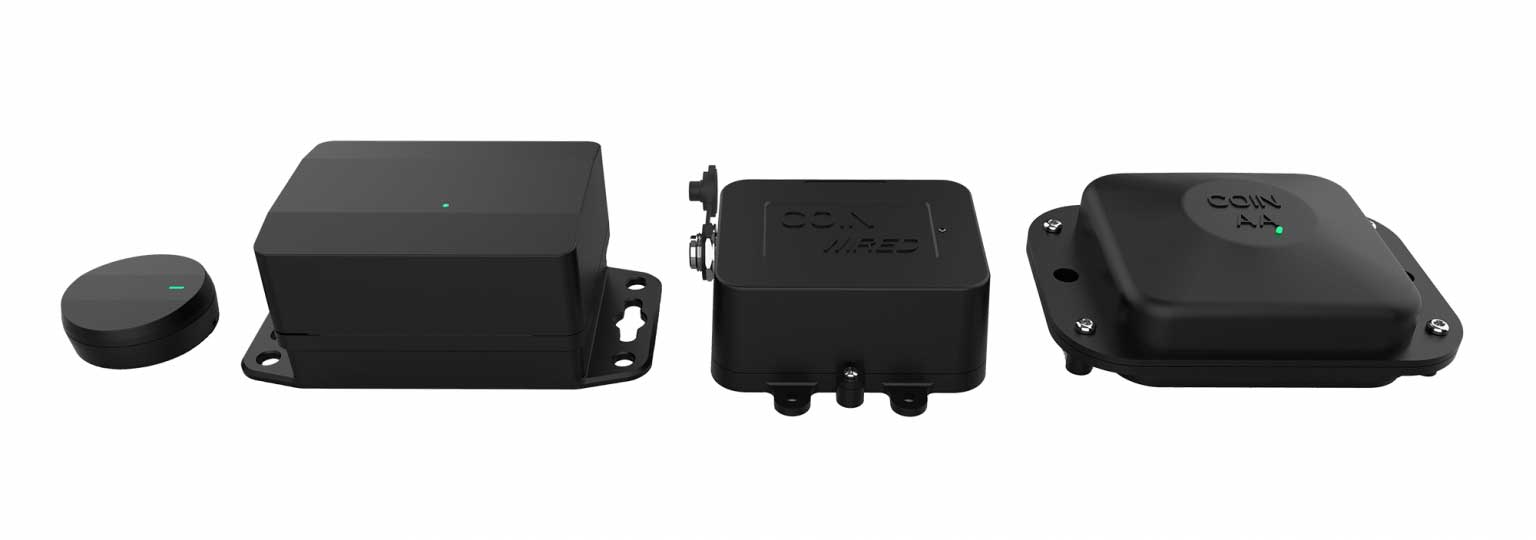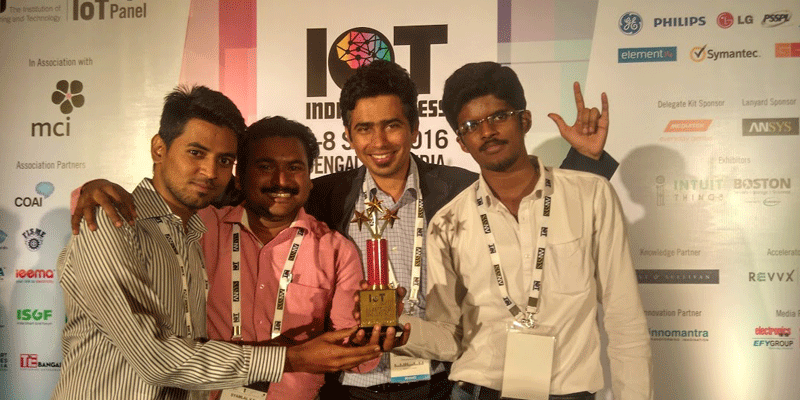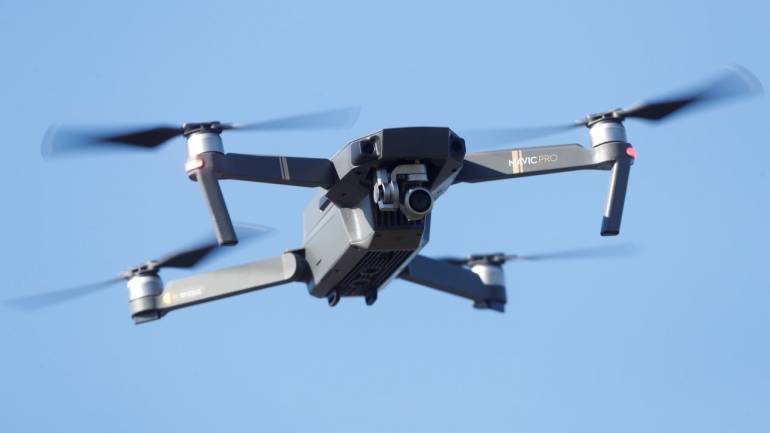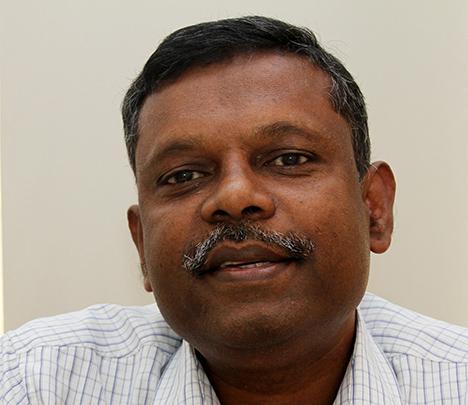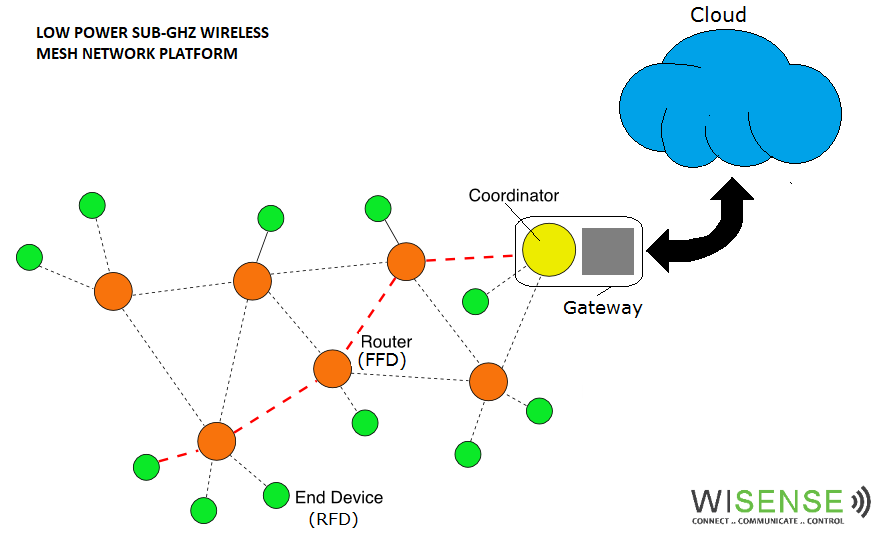Parenthood is believed to be one of the biggest joys in the world, and every new parent wants nothing more than a healthy baby. Baby Rajesh’s parents too were ecstatic when he was born, but their joy was short-lived when they found that Rajesh weighed less than a kilogram at birth. Chances of survival with such low birth weight was close to impossible. Baby Rajesh’s parents were overjoyed when Dr.Jagadishwar saved their baby miraculously.
But it was not the end of the road for baby Rajesh.
Two years later, he was diagnosed with cerebral palsy, presumably due to multiple apnoeic episodes in the time he spent in the hospital fighting for survival. If only Dr.Jagdishwar had some way to tell him the distress baby Rajesh’s fragile body was undergoing, timely medical intervention could have been done. Now, baby Rajesh has to spend his life as a cerebral palsy patient.
This incident jolted Manoj Sanker and PratyushaPareddy, bio design fellows at the Centre for Healthcare Entrepreneurship at IIT Hyderabad, to think how they could provide a solution to doctors like Jagdishwar to monitor patients at critical junctures and ensure they receive timely help.
Sanker and Pareddy eventually started Nemocare Wellness in July 2017 to build monitoring tools that would eliminate the chances of neonatal and maternal deaths. They use unobtrusive wireless wearable sensors and networks, analytical algorithms and big data as tools to provide continuous, high resolution monitoring and preventive care for every patient in hospital, and at home. The use of design thinking principles to build life-saving technologies will transform the way healthcare is delivered, believe the founders.
Globally, three million babies die in their first month of life every year, and 98% of these deaths occur in the developing world. In India, approximately 3.6 million premature babies are born every year and out of them, 40000 babies die. Premature babies are susceptible to a variety of life threatening conditions such as apnea, hypothermia and respiratory distress – causing either death or some form of morbidity.
Almost all of these deaths are preventable with timely treatment. However, hospitals in the developing world are severely challenged by limited resources.They cannot afford the expensive equipment, which are usually bulky and unsuitable for continuous monitoring. Moreover, they have a high rate of false alarms; forcing nurses to visually monitor the babies. In low resource settings, where one nurse cares for about 40 babies,she will not be able to give equal attention to every baby. Most distress conditions often go unnoticed, causing irreversible injury to the newborn and sometimes even lead to death.
If a child has to be monitored continuously, they have to be isolated and hooked to wires – which hinders breastfeeding and kangaroo mother care – which in turn hinders growth and recovery.
The NemocareRaksha is an IoT enabled smart wearable on the baby’s foot which monitors vital parameters like spo2, heart rate, respiration rate, body temperature and body position that will provide a comprehensive picture of the baby’s health. The data is then transmitted to the cloud, which can be accessed at a central monitor by which the nurse or doctor can continuously and remotely monitor all the babies through a single interface
The entire system along with Nemocare’s proprietary deep learning algorithm works as an intelligent platform that will track the baby’s health in the most accurate way possible and give only insightful notifications and alerts to healthcare workers to enable timely intervention when a distress condition is detected.This platform collects, stores, visualizes and analyses the data generated, enabling a paradigm shift in clinical diagnostics and preventive care through a data-driven approach. Inherently, the data may be used in real time to provide early warning scores or other predictive indicators, and used offline to develop new predictive algorithms.
Currently, the company is doing closed pilots for evidence creation and regulatory clearances with two public hospitals and two private hospitals.Nemocare plans to monitor and save nearly 900,000 babies through their 21,000 deployed devices over the next five years.
With Digital Propulsion of Universal Healthcare as the theme of the upcoming Lifesciences & Healthcare Innovation Forum (LHIF), here’s your chance to witness the success of innovations such as Nemocare.
For Sponsorship Queries, contact Arjun Alva (arjun@nasscom.in) and for General Queries, contact Vijetha (vijetha@mail.nasscom.in)
Related posts
Exclusive: Former Snapdeal exec Anand Chandrasekaran backs Uncanny Vision
Portable ECG device helps save lives in rural areas, reduces cost for patients
IoT Pot plans to take cooking Knob to US
IoT industry should have common standards: Teaotia
Overview of the Indian #sportstech landscape
This Bengaluru techie-turned-farmer has made India’s first agri-tech robot to battle farm labour shortage
What Lies Ahead For India’s High-Potential Clinical Trial Market?
Projecting revenues of $250K, Cardiotrack is transforming how primary healthcare functions
Medtech takes centre stage at AIRmaker’s new batch of 8 IoT startups
Villgro funds agri start-up GRoboMac
Cardiotrack collaborates with iMMi Life for cardiac care
Universal Healthcare- Digital Propulsion 30th April 2019 at Shangri La’s Eros Hotel- Delhi
Oh Baby! Deep Technology Learns To Rock
Here Are 3 Startups From India You’ll Want To Watch In 2017
STR8BAT gives INSTANT, VISUAL and ACTIONABLE IN-SIGHTS, HELPING PLAYERS PLAY BETTER EVERYDAY
From Womb To Cloud: This Startup Is Monitoring Maternal Health Using Smart Wearables
4 Bengaluru startups will work with Airbus to shape the future of aerospace
Avanijal’s app irrigates fields while helping farmers save water and sleep!
WiSense: engineering veterans provide a platform for Internet of Things ideas
Data-driven insights for an improved game on the cricket field
Qualcomm Announces Top Eight Finalists for Cycle I of Qualcomm Design in India Challenge II
Get Set, Co-Create: This Startup Is On The Fast Lane To Innovate With Mercedes’ Startup Autobahn
AI for an Eye Makes The World Better For The Visually Impaired
Reliance’s Unlimit, IBM collaborate to power IoT innovation in India
Nestle picks up SilverPush and IotPot for its ‘next big project’
BFSI – Strategy Innovation Group (BFSI-SIG)
IoT India Congress recognises top three IoT focussed thought leaders and Start-up in India
How Industries & Innovators Can Leverage The Power of Digital Technology in Manufacturing
SeeHow Announces Smart Cricket Coaching System in Partnership with Rx Cricket Academy
Hardware startup Sensegiz catches fancy of KARSEMVEN, raises $500,000
Your Local APMC-Mandi Just Got Smarter
Say hello to #LHIF
Qualcomm to announce tech startup winners of $100,000 Design in India challenge today
SenseGiz-A vision to make the world appreciably productive, safer and secure place to live in!
Driving Digital Awakening Across Enterprises Today
A Billion Dollar Market – India’s Health Insurance Market Is At A Precipice Of Change
GE Healthcare India Edison[TM] Accelerator: The first-ever global startup collaboration program!
Working In Hazardous Conditions? Worry not, IoT Comes To The Rescue
This IoT startup plugs holes in your leaky bucket
LHIF Report Nov 2018
Here comes the Robot Reaper
Transforming Sports Gear into Smart Devices to Deliver Real-Time Analytics
When All Else Fails, This Internet Network Can Bail You Out Of A Crisis
Cardiotrack partners with Columbia Asia Hospitals to provide AI-based solutions in cardiac care
The Evolution of Bluetooth: From Entertainment To Smart Buildings
Qualcomm selects three startups for $100K design prize
Nasscom Discussion
Latest News
Recent Posts
- AI LifeBOT: Breaking Communication Barriers with Conversational October 14, 2025
- How AI-Powered Drug Discovery Is Reimagining the Future of Medicine August 11, 2025
- From Industries to Public Services: AI Innovation Challenge Bridges Tech and Real-World Impact July 10, 2025
- The Future of Incubation: What the Next Generation of Startup Support Looks Like April 29, 2025
- The Impact of AI in Healthcare April 22, 2025

